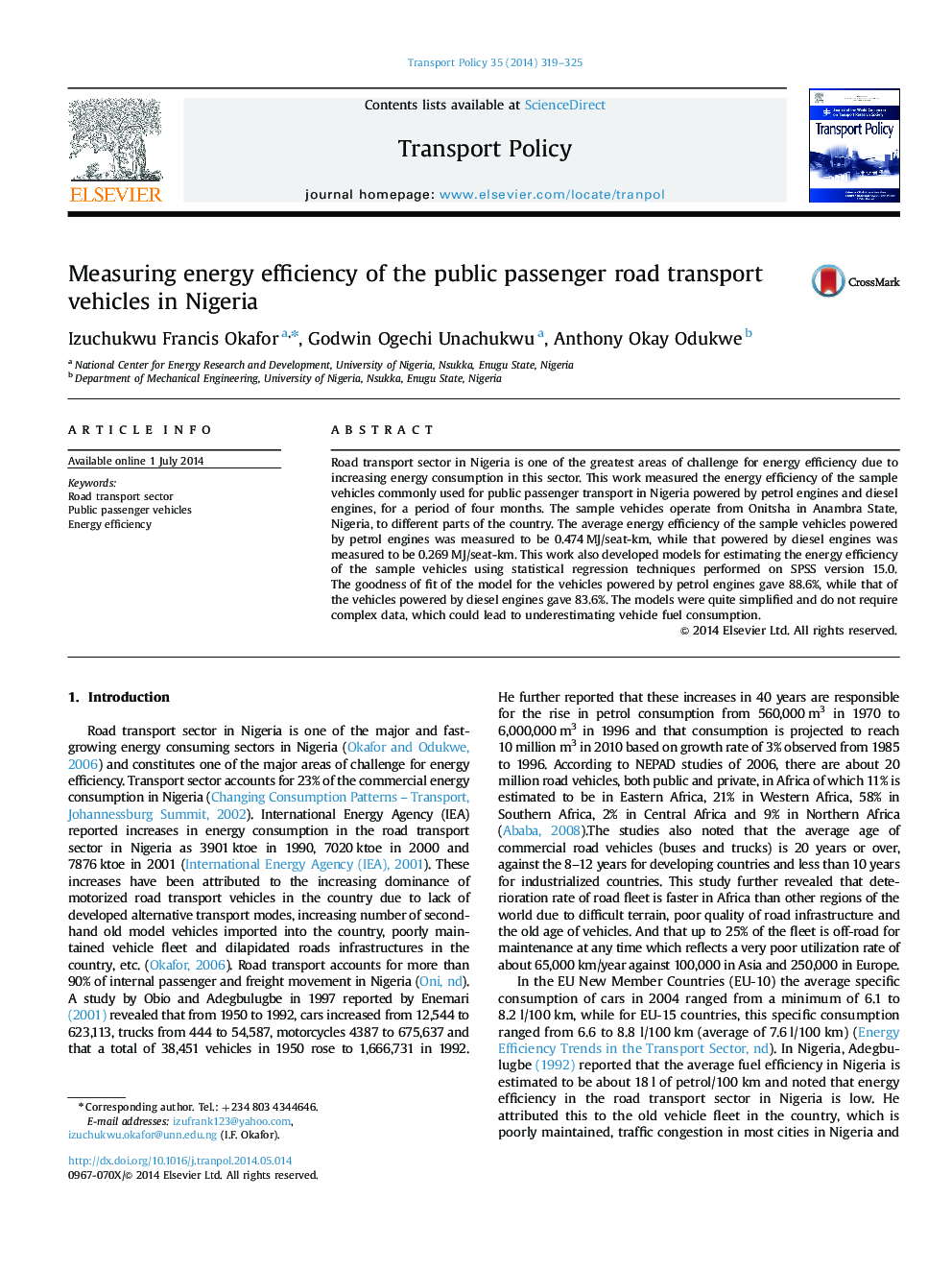| Article ID | Journal | Published Year | Pages | File Type |
|---|---|---|---|---|
| 1064886 | Transport Policy | 2014 | 7 Pages |
•Energy efficiency in road transport sub-sector in Nigeria was measured.•Energy efficiency of public passenger transport vehicles in Nigeria was low.•Low energy efficiency was due to roads conditions and vehicle maintenance.•Models for estimating energy efficiency of road transport vehicles were developed.
Road transport sector in Nigeria is one of the greatest areas of challenge for energy efficiency due to increasing energy consumption in this sector. This work measured the energy efficiency of the sample vehicles commonly used for public passenger transport in Nigeria powered by petrol engines and diesel engines, for a period of four months. The sample vehicles operate from Onitsha in Anambra State, Nigeria, to different parts of the country. The average energy efficiency of the sample vehicles powered by petrol engines was measured to be 0.474 MJ/seat-km, while that powered by diesel engines was measured to be 0.269 MJ/seat-km. This work also developed models for estimating the energy efficiency of the sample vehicles using statistical regression techniques performed on SPSS version 15.0. The goodness of fit of the model for the vehicles powered by petrol engines gave 88.6%, while that of the vehicles powered by diesel engines gave 83.6%. The models were quite simplified and do not require complex data, which could lead to underestimating vehicle fuel consumption.
